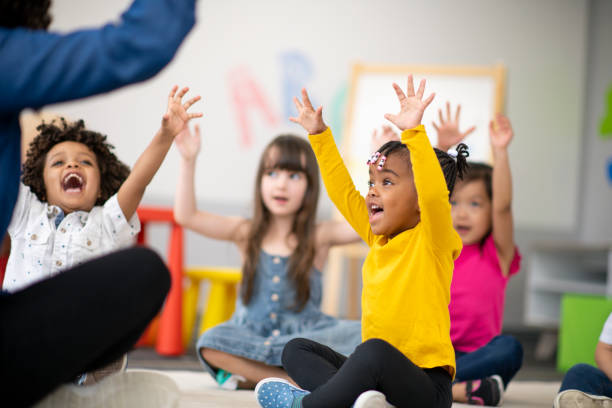Emotional development in 1-2 year old babies
Emotional development, like other areas of development, develops as the child grows. Recognizing and understanding emotions, knowing why they occur, being aware of their own emotions and those of others, and being able to cope with these emotions are emotional skills that the child will acquire over time.
Emotional development in 1-2 year old babies
Emotional development, like other areas of development, develops as the child grows. Recognizing and understanding emotions, knowing why they occur, being aware of their own emotions and those of others, and being able to cope with these emotions are emotional skills that the child will acquire over time. As the child grows, his/her feelings become more complex as his/her environment expands, as his/her experiences increase and as the number of people he/she communicates with increases. With his experiences and observations, the child develops methods to control these feelings, to express them correctly, to make sense of their own and others’ feelings and to behave appropriately.
The child, who has experienced basic emotions such as happiness, relief, sadness and fear in his infancy, begins to encounter more complex emotions after the age of one, and to name and give meaning to these emotions. Feelings of embarrassment in a new environment, pride when they achieve something, and shyness when they meet a stranger are new emotions for the self-aware child. As the child begins to walk, he wants to experience his freedom, gets away from his parents and discovers the world and becomes aware of his own feelings. Although she is content with her freedom, she still depends on her parents and needs them at all times. This often causes the child’s mood to change. The happy child, who discovers the environment alone for a moment, may suddenly want to take shelter in his mother by crying.
The anxiety and stress that the child experiences in the absence of his parents continues. The separation from his parents makes him unhappy and the child shows this by crying, this is a healthy reaction. Notifying the child a certain time before leaving the house, specifying when he will return, and returning at the appointed time increases the child’s confidence and helps him cope with this situation. At this age, the child begins to have different feelings for different people and the presence of strangers makes him nervous.
From the age of one, the child becomes free, wants to do everything himself, and begins to become stubborn, with the beginning of walking, the strengthening of his motor skills, the development of his mental and social skills. One of the areas he wants to take control of is food. He may try to gain control by being stubborn at meal times, refusing to eat, throwing food on the floor, and projecting emotions such as anger and sadness. Children who want to eat their own food should be given the opportunity, and should not be forced if they do not want to eat. When he gets bored of sitting in the highchair for a long time, he should not be stubborn to get up, he should be allowed to get off the chair, and he should not walk around with food.
A one-year-old may be angry at many different times, such as at mealtime. The child may get angry at bedtime, during his favorite bath time, while leaving the house, while returning home from the park, while getting dressed, undressing, changing the diaper. Constantly talking to the child while he is experiencing anger, and overreacting to calm him down can exacerbate his anger and delay its end. Therefore, it is necessary to hug the child, pat him on the back, talk calmly about his feelings. “I see you don’t want your diaper changed and you’re angry that I tried to change it but I have to change it or you’ll be annoyed. I understand your anger, but I don’t want you to throw your toys left and right when you’re angry, because something will hurt someone,” and you can show that you understand and accept his feeling, but you don’t approve of his behavior. When the child has a tantrum as he gets older, after showing that you understand his feelings and making sure that the child will not harm him, leaving him alone without leaving his side, not to go against it, helps the child to calm down more quickly, and helps the child learn to cope with his own emotions and calm himself.
The child, who has begun to explore his different emotions, has not yet mastered his emotions and reactions related to them. When he is very angry, he can bite, hit, throw what he has in his hand. At such times, the parents should grasp the child’s hand without hurting it, hug it tightly, not allow the undesirable behavior to continue, and wait for it to calm down. After the child has calmed down, it would be appropriate to talk about his anger and reason, to indicate that the emotion is understood, but to explain that his behavior is not accepted, and to teach him to control himself. Feeling understood but not approved reassures the child. After a while, the child will learn to control his anger and that this behavior is not right.
The duty of parents in terms of emotional development
Giving importance to the child’s feelings, observing which feelings where and when they experience and how they deal with these feelings, watching and trying to understand the child’s body language, what they are trying to say and their behavior. Talking with the child about their feelings, naming their feelings, indicating appropriate ways of expressing their feelings, informs them about their feelings. Parents’ expressing their own feelings and showing how they deal with their feelings support the emotional development of the child.
